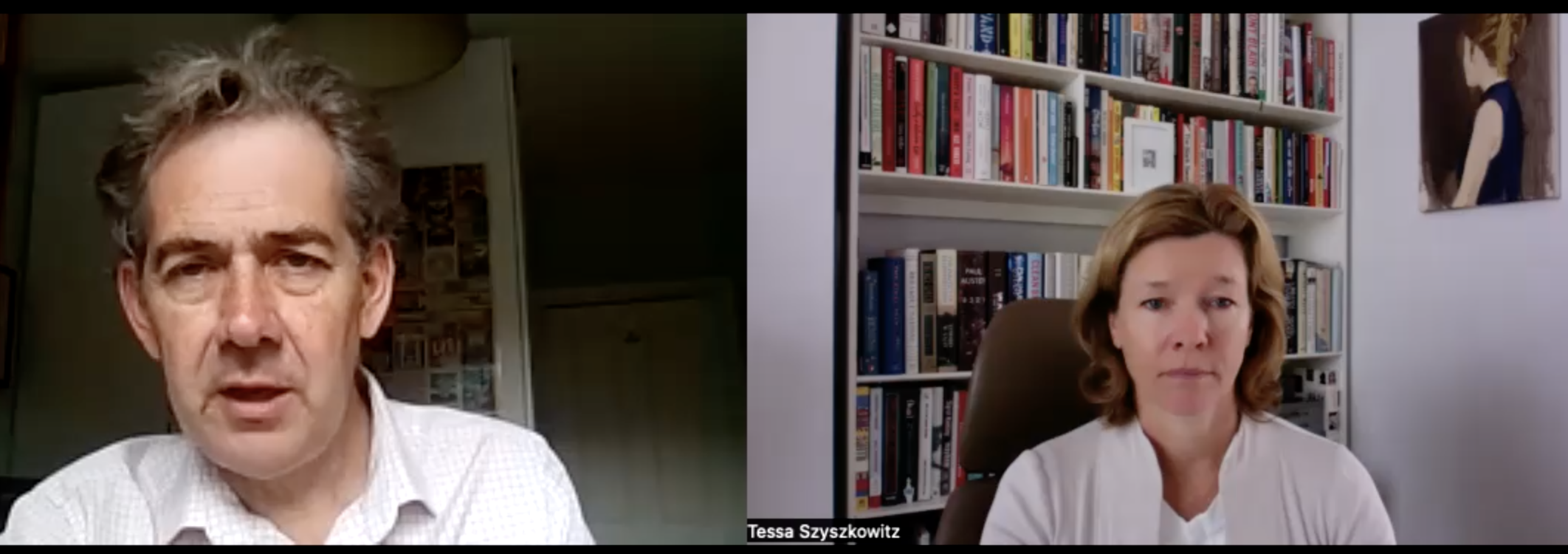Nagorno-Karabakh: The end of an enclave
https://www.youtube.com/watch?v=PRLq_HGOfL8&ab_channel=BrunoKreiskyForumf%C3%BCrinternationalenDialog
Tessa Szyszkowitz in conversation with Thomas de Waal.
After the recent military victory of Azerbaijan over Armenia most of the Armenian population of the enclave Nagorno-Karabakh has fled to Armenia. More than 100.000 people left their homes. On September 19, Azerbaijan used military force to retake the Armenian-populated territory of Nagorno-Karabakh, crossing a red line drawn for it by both the European Union and the United States.
The fact that Western actors were blindsided strengthens the supposition that Aliyev cleared his military assault in advance with Moscow—which then failed to condemn Baku—and is coming into closer alignment with Russia. That is all the more relevant as the next big issue is the planned transport route across Armenia to Azerbaijan’s exclave of Nakhichevan. Russia, Azerbaijan, and Turkey all have a shared interest in imposing their own version of what the latter two call the Zangezur Corridor with as little Armenian control of the route as possible—and perhaps by force.
Azerbaijan has given orders to close down the enclave by January 1 2024.
In this Online talk Kaukasus-expert Thomas de Waal explains the deep implications of the end of Nagorno- Karabakh for the international policy arena. Thomas de Waal, is a senior fellow with Carnegie Europe, specializing in Eastern Europe and the Caucasus region. He is the author of numerous publications about the region. He is best known for his 2003 book Black Garden: Armenia and Azerbaijan Through Peace and War. Tom is also the brother of Africa-specialist Alex de Waal and Edmund de Waal, author of the Hare with the amber Eyes.
Tessa Szyszkowitz in conversation with Thomas de Waal.
After the recent military victory of Azerbaijan over Armenia most of the Armenian population of the enclave Nagorno-Karabakh has fled to Armenia. More than 100.000 people left their homes. On September 19, Azerbaijan used military force to retake the Armenian-populated territory of Nagorno-Karabakh, crossing a red line drawn for it by both the European Union and the United States.
The fact that Western actors were blindsided strengthens the supposition that Aliyev cleared his military assault in advance with Moscow—which then failed to condemn Baku—and is coming into closer alignment with Russia. That is all the more relevant as the next big issue is the planned transport route across Armenia to Azerbaijan’s exclave of Nakhichevan. Russia, Azerbaijan, and Turkey all have a shared interest in imposing their own version of what the latter two call the Zangezur Corridor with as little Armenian control of the route as possible—and perhaps by force.
Azerbaijan has given orders to close down the enclave by January 1 2024.
In this Online talk Kaukasus-expert Thomas de Waal explains the deep implications of the end of Nagorno- Karabakh for the international policy arena. Thomas de Waal, is a senior fellow with Carnegie Europe, specializing in Eastern Europe and the Caucasus region. He is the author of numerous publications about the region. He is best known for his 2003 book Black Garden: Armenia and Azerbaijan Through Peace and War. Tom is also the brother of Africa-specialist Alex de Waal and Edmund de Waal, author of the Hare with the amber Eyes.



